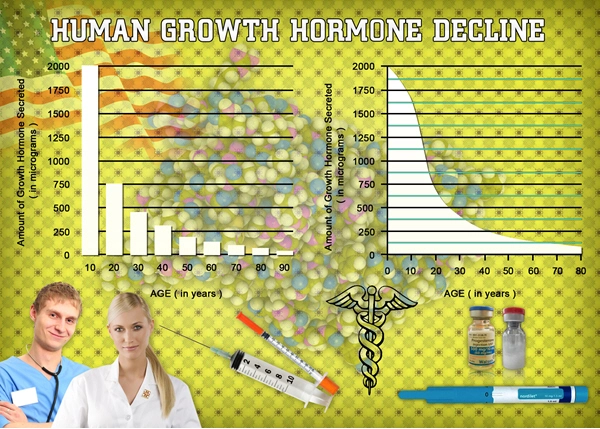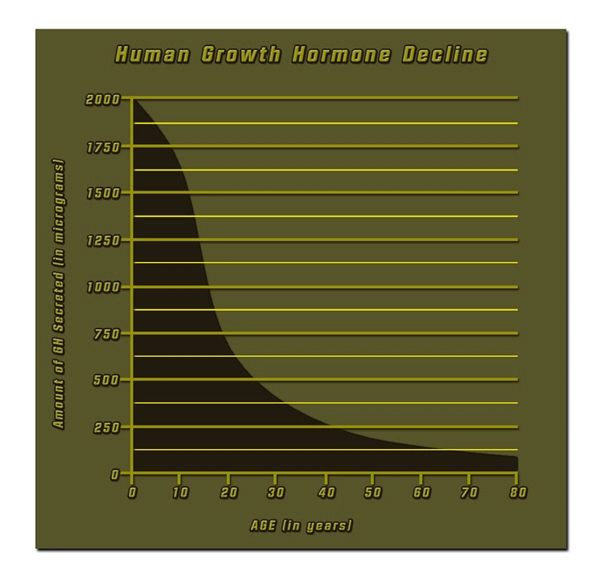Introduction
The quest for an ideal physique has led many American males to explore various avenues to enhance their bodybuilding efforts. Among the most popular methods is the use of protein supplements, which are marketed as essential tools for muscle growth and recovery. This article delves into the efficacy and safety concerns associated with protein supplements, providing a comprehensive review tailored to the American male demographic.
The Role of Protein in Bodybuilding
Protein is a fundamental macronutrient crucial for muscle repair and growth. In the context of bodybuilding, protein supplements are often used to meet the increased protein demands that come with intense training regimens. These supplements, available in forms such as powders, bars, and shakes, are designed to provide a convenient and concentrated source of protein.
Efficacy of Protein Supplements
Numerous studies have investigated the impact of protein supplements on muscle growth and performance. A meta-analysis published in the *Journal of the International Society of Sports Nutrition* found that protein supplementation, when combined with resistance training, significantly enhances muscle mass and strength gains in young adults. Specifically, whey protein, a popular choice among American males, has been shown to be particularly effective due to its high bioavailability and rapid digestion.
However, the efficacy of protein supplements is not uniform across all users. Factors such as individual protein needs, training intensity, and overall diet play critical roles in determining the benefits derived from these supplements. For American males engaged in regular resistance training, protein supplements can be a valuable addition to their regimen, but they should not be viewed as a standalone solution.
Safety Concerns and Considerations
While protein supplements can be beneficial, they are not without potential risks. One of the primary concerns is the quality and purity of the products. The U.S. Food and Drug Administration (FDA) does not strictly regulate dietary supplements, which can lead to inconsistencies in product quality. Contaminants such as heavy metals, banned substances, and incorrect labeling have been reported in some protein supplements, posing health risks to consumers.
Additionally, excessive protein intake can lead to adverse effects such as kidney strain, dehydration, and gastrointestinal issues. American males, particularly those with pre-existing health conditions, should consult with healthcare professionals before starting any supplement regimen. It is also crucial to adhere to recommended dosages and to integrate supplements into a balanced diet rather than relying on them exclusively.
Optimal Use of Protein Supplements
To maximize the benefits and minimize the risks associated with protein supplements, American males should consider the following guidelines:
1. **Assess Individual Needs:** Determine your daily protein requirements based on your body weight, training intensity, and overall diet. A general recommendation is 1.6 to 2.2 grams of protein per kilogram of body weight for those engaged in regular resistance training.
2. **Choose High-Quality Products:** Opt for supplements from reputable brands that undergo third-party testing for quality and purity. Look for certifications from organizations such as NSF International or the U.S. Pharmacopeia.
3. **Integrate with a Balanced Diet:** Use protein supplements as a complement to, rather than a replacement for, whole food sources of protein. A diet rich in lean meats, fish, eggs, dairy, and plant-based proteins is essential for overall health and performance.
4. **Monitor Intake and Health:** Keep track of your protein intake and be mindful of any adverse effects. Regular check-ups with a healthcare provider can help monitor kidney function and other health parameters.
Conclusion
Protein supplements can be a valuable tool for American males looking to enhance their bodybuilding efforts, offering a convenient way to meet increased protein needs. However, their efficacy is contingent upon proper use and integration into a comprehensive fitness and nutrition plan. Safety concerns, particularly related to product quality and excessive intake, must be carefully managed. By adhering to evidence-based guidelines and prioritizing a balanced approach, American males can safely and effectively incorporate protein supplements into their bodybuilding journey.

- Maximizing Longevity Through Bodybuilding: Insights from Geriatric Medicine for American Males [Last Updated On: March 1st, 2025] [Originally Added On: March 1st, 2025]
- Approaching Mental Wellness Through Physical Strength: Insights into Body Building as Therapeutic Intervention [Last Updated On: March 2nd, 2025] [Originally Added On: March 2nd, 2025]
- Enhancing Bodybuilding Performance and Injury Prevention: The Critical Role of Physical Therapy [Last Updated On: March 3rd, 2025] [Originally Added On: March 3rd, 2025]
- Essential Nutritional Strategies for Effective Bodybuilding [Last Updated On: March 4th, 2025] [Originally Added On: March 4th, 2025]
- Exploring the Synergy Between Bodybuilding and Diabetes Management in American Males [Last Updated On: March 4th, 2025] [Originally Added On: March 4th, 2025]
- Exploring Bodybuilding: Effects on Muscle, Fat, and Bone Health [Last Updated On: March 5th, 2025] [Originally Added On: March 5th, 2025]
- Strength Training's Role in Enhancing Cardiovascular Health Among American Men [Last Updated On: March 6th, 2025] [Originally Added On: March 6th, 2025]
- Orthopedic Health Strategies for American Male Bodybuilders: Prevention, Nutrition, and Rehabilitation [Last Updated On: March 7th, 2025] [Originally Added On: March 7th, 2025]
- The Dangers of Anabolic Steroid Use: Health Risks and Safe Practices for Bodybuilders [Last Updated On: March 8th, 2025] [Originally Added On: March 8th, 2025]
- Optimizing Hormonal Dynamics in Bodybuilding: Key Strategies for Health and Performance [Last Updated On: March 9th, 2025] [Originally Added On: March 9th, 2025]
- Exploring the Psychological Benefits of Bodybuilding for American Males [Last Updated On: March 12th, 2025] [Originally Added On: March 12th, 2025]
- Bodybuilding: A Holistic Strategy to Combat Obesity and Enhance Metabolic Health in Males [Last Updated On: March 13th, 2025] [Originally Added On: March 13th, 2025]
- The Impact of Bodybuilding on Sleep: Patterns and Quality in American Males [Last Updated On: March 13th, 2025] [Originally Added On: March 13th, 2025]
- Harnessing the Power of Bodybuilding to Alleviate Chronic Pain in American Males [Last Updated On: March 15th, 2025] [Originally Added On: March 15th, 2025]
- Health Risks in Competitive Bodybuilding: Steroids, Organ Damage, and Mental Health [Last Updated On: March 17th, 2025] [Originally Added On: March 17th, 2025]
- Post-Surgery Rehabilitation Enhanced by Bodybuilding for American Males: A Comprehensive Guide [Last Updated On: March 18th, 2025] [Originally Added On: March 18th, 2025]
- Injury Prevention Strategies for American Male Bodybuilders: Techniques and Recovery [Last Updated On: March 18th, 2025] [Originally Added On: March 18th, 2025]
- Bodybuilding's Role in Addiction Recovery: Psychological and Physiological Benefits for American Males [Last Updated On: March 18th, 2025] [Originally Added On: March 18th, 2025]
- Bodybuilding: A Strategic Approach to Managing Hypertension in American Men [Last Updated On: March 19th, 2025] [Originally Added On: March 19th, 2025]
- Bodybuilding's Impact on Endocrine System: Hormonal Fluctuations and Health Risks in American Males [Last Updated On: March 19th, 2025] [Originally Added On: March 19th, 2025]
- Body Building as a Therapeutic Strategy for Osteoporosis in American Males [Last Updated On: March 20th, 2025] [Originally Added On: March 20th, 2025]
- Body Building: Dispelling Myths and Embracing Medical Facts for American Males [Last Updated On: March 20th, 2025] [Originally Added On: March 20th, 2025]
- Bodybuilding Boosts Immune Health in American Males: A Comprehensive Guide [Last Updated On: March 20th, 2025] [Originally Added On: March 20th, 2025]
- Bodybuilding and Kidney Health: Safe Practices for American Males [Last Updated On: March 21st, 2025] [Originally Added On: March 21st, 2025]
- Bodybuilding and Lifestyle Diseases: A Holistic Approach for American Males [Last Updated On: March 21st, 2025] [Originally Added On: March 21st, 2025]
- Body Building: A Powerful Antidote to Stress and Anxiety for American Males [Last Updated On: March 21st, 2025] [Originally Added On: March 21st, 2025]
- Body Building in Pediatric American Males: Growth, Nutrition, and Psychological Impacts [Last Updated On: March 22nd, 2025] [Originally Added On: March 22nd, 2025]
- Bodybuilding Enhances Lung Function: A Respiratory Therapist's Insight [Last Updated On: March 22nd, 2025] [Originally Added On: March 22nd, 2025]
- Debunking Menstrual Cycle Myths in Bodybuilding: A Guide for American Males [Last Updated On: March 22nd, 2025] [Originally Added On: March 22nd, 2025]
- Bodybuilding: A Holistic Approach to Health for American Males [Last Updated On: March 23rd, 2025] [Originally Added On: March 23rd, 2025]
- Bodybuilding: A Potent Strategy Against Age-Related Muscle Loss in American Males [Last Updated On: March 23rd, 2025] [Originally Added On: March 23rd, 2025]
- Body Building Benefits and Risks for Sickle Cell Disease Patients [Last Updated On: March 23rd, 2025] [Originally Added On: March 23rd, 2025]
- Bodybuilding and Heart Health: Risks, Impacts, and Cardiologist's Guidance [Last Updated On: March 23rd, 2025] [Originally Added On: March 23rd, 2025]
- Bodybuilding: A Holistic Approach to Managing COPD in American Men [Last Updated On: March 23rd, 2025] [Originally Added On: March 23rd, 2025]
- Bodybuilding Enhances Gut Health: A Comprehensive Guide for American Males [Last Updated On: March 24th, 2025] [Originally Added On: March 24th, 2025]
- Essential Vitamins and Supplements for American Male Bodybuilders: A Medical Review [Last Updated On: March 24th, 2025] [Originally Added On: March 24th, 2025]
- Genetic Factors in Muscle Growth for American Male Bodybuilders: A Comprehensive Analysis [Last Updated On: March 24th, 2025] [Originally Added On: March 24th, 2025]
- Bodybuilding for New Fathers: Enhancing Postnatal Recovery and Well-being [Last Updated On: March 24th, 2025] [Originally Added On: March 24th, 2025]
- Bodybuilding's Impact on Prostate Health: Risks and Prevention for American Men [Last Updated On: March 24th, 2025] [Originally Added On: March 24th, 2025]
- Body Building as a Non-Pharmacological Strategy for Parkinson's in American Men [Last Updated On: March 25th, 2025] [Originally Added On: March 25th, 2025]
- Bodybuilding's Metabolic Impact: Muscle Growth, Insulin Sensitivity, and Health Risks [Last Updated On: March 25th, 2025] [Originally Added On: March 25th, 2025]
- Bodybuilding: A Comprehensive Anti-Aging Strategy for American Males [Last Updated On: March 25th, 2025] [Originally Added On: March 25th, 2025]
- Orthostatic Hypotension in American Male Bodybuilders: Causes, Symptoms, and Management Strategies [Last Updated On: March 25th, 2025] [Originally Added On: March 25th, 2025]
- Asthma and Bodybuilding: Safe Integration and Health Benefits for American Males [Last Updated On: March 25th, 2025] [Originally Added On: March 25th, 2025]
- Body Building's Potential to Reduce Dementia Risk in American Males Explored [Last Updated On: March 25th, 2025] [Originally Added On: March 25th, 2025]
- Bodybuilding as a Therapeutic Approach for Mood Disorders in American Males [Last Updated On: March 26th, 2025] [Originally Added On: March 26th, 2025]
- Bodybuilding Techniques to Prevent Musculoskeletal Disorders in American Males [Last Updated On: March 26th, 2025] [Originally Added On: March 26th, 2025]
- Bodybuilding as a Therapeutic Strategy for Managing PTSD in American Males [Last Updated On: March 26th, 2025] [Originally Added On: March 26th, 2025]
- Bodybuilding's Psychological Impact on American Teenage Males: Benefits and Risks [Last Updated On: March 26th, 2025] [Originally Added On: March 26th, 2025]
- Bodybuilding: Empowering American Males Against Chronic Degenerative Diseases [Last Updated On: March 26th, 2025] [Originally Added On: March 26th, 2025]
- Bodybuilding Enhances Mental Resilience in American Men: A Comprehensive Insight [Last Updated On: March 26th, 2025] [Originally Added On: March 26th, 2025]
- Male Menopause and Body Building: Navigating Fitness in Andropause [Last Updated On: March 26th, 2025] [Originally Added On: March 26th, 2025]
- Liquid Diets for Bodybuilders: Efficacy, Risks, and Medical Insights for American Males [Last Updated On: March 27th, 2025] [Originally Added On: March 27th, 2025]
- Bodybuilding: A Holistic Approach to Managing Arthritis in American Males [Last Updated On: March 27th, 2025] [Originally Added On: March 27th, 2025]
- Preventing and Managing Common Bodybuilding Injuries in American Males [Last Updated On: March 27th, 2025] [Originally Added On: March 27th, 2025]
- Hydration's Critical Role in Bodybuilding: Guidelines and Strategies for American Males [Last Updated On: March 27th, 2025] [Originally Added On: March 27th, 2025]
- Body Building Reduces Colon Cancer Risk in American Males: A Comprehensive Guide [Last Updated On: March 27th, 2025] [Originally Added On: March 27th, 2025]
- Bodybuilding Boosts Immune Health: A Vital Component for American Men's Wellness [Last Updated On: March 27th, 2025] [Originally Added On: March 27th, 2025]
- Bodybuilding Enhances Cognitive Health in American Males: A Comprehensive Overview [Last Updated On: March 28th, 2025] [Originally Added On: March 28th, 2025]
- Bodybuilding: A Recovery Tool for American Men Post-Chemotherapy [Last Updated On: March 28th, 2025] [Originally Added On: March 28th, 2025]
- Body Building and Heart Health: Risks, Benefits, and Safe Practices for American Males [Last Updated On: March 28th, 2025] [Originally Added On: March 28th, 2025]
- Bodybuilding: A Therapeutic Approach for American Men with Rheumatoid Arthritis [Last Updated On: March 28th, 2025] [Originally Added On: March 28th, 2025]
- Essential Safety Precautions for American Male Bodybuilders [Last Updated On: March 29th, 2025] [Originally Added On: March 29th, 2025]
- Medically Supervised Bodybuilding: Safe Weight Management for American Males [Last Updated On: March 30th, 2025] [Originally Added On: March 30th, 2025]
- Bodybuilding Boosts Metabolism: Muscle Mass, Hormones, and Health Benefits for American Males [Last Updated On: March 30th, 2025] [Originally Added On: March 30th, 2025]
- Bodybuilding Boosts Bone Density in American Males: Strategies and Benefits [Last Updated On: March 30th, 2025] [Originally Added On: March 30th, 2025]
- Bodybuilding Boosts Cardiovascular Fitness: A Holistic Approach for American Males [Last Updated On: April 1st, 2025] [Originally Added On: April 1st, 2025]
- Bodybuilding's Impact on Life Expectancy: Benefits, Risks, and Safe Practices for American Males [Last Updated On: April 1st, 2025] [Originally Added On: April 1st, 2025]
- Bodybuilding's Impact on Hormonal Health in American Males: Balancing Key Hormones [Last Updated On: April 2nd, 2025] [Originally Added On: April 2nd, 2025]
- Flexibility Training: Essential for Enhancing Bodybuilding Performance and Health [Last Updated On: April 5th, 2025] [Originally Added On: April 5th, 2025]
- Stretching: Enhancing Performance and Preventing Injuries in Bodybuilding for American Males [Last Updated On: April 7th, 2025] [Originally Added On: April 7th, 2025]
- Bodybuilding and Gut Health: Maximizing Muscle Growth Through Digestive Wellness [Last Updated On: April 7th, 2025] [Originally Added On: April 7th, 2025]
- Bodybuilding's Role in Stress Management for American Males: Clinical Insights [Last Updated On: April 7th, 2025] [Originally Added On: April 7th, 2025]
- Bodybuilding Enhances Recovery for American Males Post-Joint Replacement Surgery [Last Updated On: April 8th, 2025] [Originally Added On: April 8th, 2025]
- Bodybuilding: A Complementary Approach to Managing Sciatica in American Males [Last Updated On: April 8th, 2025] [Originally Added On: April 8th, 2025]
- Vegetarian Bodybuilding: Strategies for Muscle Growth on a Plant-Based Diet [Last Updated On: April 11th, 2025] [Originally Added On: April 11th, 2025]
- Structured Bodybuilding: Preventing Low Back Pain in American Males [Last Updated On: April 12th, 2025] [Originally Added On: April 12th, 2025]
- Overexertion Risks in Bodybuilding: Impacts and Prevention Strategies [Last Updated On: April 12th, 2025] [Originally Added On: April 12th, 2025]
- Chiropractic Care: Preventing and Managing Back Pain in Bodybuilding [Last Updated On: April 12th, 2025] [Originally Added On: April 12th, 2025]
- Bodybuilding: A Therapeutic Approach for Men with ADHD [Last Updated On: April 13th, 2025] [Originally Added On: April 13th, 2025]



List of USA state clinics - click a flag below for blood testing clinics.
Word Count: 640


















































